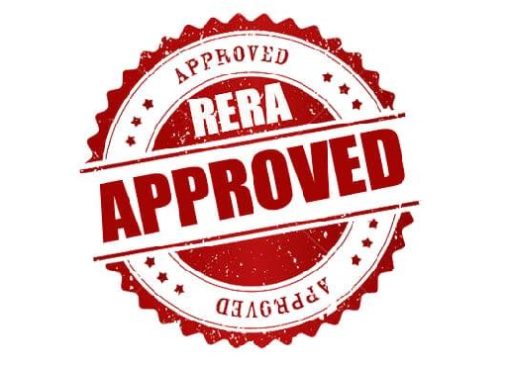Purchasing a lavish home is more than just a change in lifestyle; it is an investment, and its implications have to be thought through. In its legal consequences, this purchase will require one’s attention. Besides the elegance of the interior as well as the breathtaking view, a buyer’s satisfaction comes from the relevant legal paperwork and contracts.
With this guide, you will be immersed in the purchasing process of a luxury home and provided with the list of required legal documents essential for this transaction. You can now confidently pursue the purchase of a luxury home, knowing the legal documentation is well understood.
Primary Ownership and Transaction Documents
Purchasing a luxury home involves more than just selecting the right property; it demands legal validation at every step. The following documents establish ownership, verify the transaction, and safeguard the interests of both buyer and seller.
Sale Agreement and Sale Deed
These are the two most critical documents in any property transaction, forming the legal foundation for the transfer of ownership.
- Sale Agreement: This document is executed before the actual sale deed and serves as a promise to transfer ownership at a future date, upon fulfilment of agreed conditions. It outlines crucial details such as:
- Total sale consideration and payment schedule.
- Project specifications and timeline for completion.
- Obligations of the developer (including delivery timelines and amenities).
- Clause for breach of terms and remedies available.
- Sale Deed: Once the terms in the sale agreement are fulfilled, the sale deed is executed and registered, legally transferring ownership from the seller to the buyer. Without registration, the deed has no legal standing.
Possession Certificate
This document certifies that the physical possession of the property has been handed over to the buyer.
- It is typically issued by the developer once the home is ready for occupation.
- It ensures that the buyer has taken possession of the home as per the sale agreement.
- A Possession Certificate is required for utility connections (electricity, water, gas) and may also be necessary for claiming certain tax benefits.
Also Read: Creating a Luxury Villa at Rustomjee Belle Vie: Endless Possibilities
Builder Compliance Certificates
Builder compliance documentation ensures that the property has been constructed according to the legal and safety norms stipulated by regulatory authorities. These documents are especially critical in luxury projects, where precision, compliance, and timelines directly affect property value.
Occupancy Certificate (OC)
An Occupancy Certificate is provided by the local civic or planning authority. This certificate confirms that the construction is finished and the building is fit for use.
- It confirms that the property complies with all building codes, safety norms, fire safety standards, and environmental guidelines.
- Without an OC, the building may be deemed illegal or incomplete, affecting your ability to secure a home loan or resell the property.
Completion Certificate (CC)
The Completion Certificate precedes the OC and is equally vital.
- It verifies that the structure has been built according to the approved plans and complies with all sanctioned guidelines.
- The certificate is issued by the municipal authorities after a thorough inspection of the structure and surrounding infrastructure (such as sewage, road access, and electricity supply).
Land and Title Related Documents
Understanding the legal ownership history and status of the land on which your luxury home stands is critical for secure investment. These documents validate that the developer has clear and marketable rights over the property.
Mother Deed and Mutation Documents
These establish the legal ownership chain and land title legitimacy.
- Mother Deed: A crucial legal record that outlines the property’s ownership lineage and its original acquisition.
- Mutation Documents: Mutation is the process of updating ownership details in local municipal records. It ensures that property tax and utility bills are directed to the rightful owner.
Property Tax Receipts
A clear property tax history indicates that the property is free of tax-related encumbrances.
- Verify that the seller or developer has paid all property taxes up to date.
- In luxury housing, unpaid property taxes can lead to legal complications or penalties during resale or property transfer.
In Mumbai, the Brihanmumbai Municipal Corporation (BMC) imposes a penalty of 2% per month on unpaid property tax dues, amounting to 24% annually. This penalty accrues after three months from the service of the tax bill, as stipulated under Section 202 of the Mumbai Municipal Corporation Act, 1888.
Also Read: How Rustomjee Parishram Enhances Your Lifestyle with World-Class Amenities
Government and Local Authority Approvals
When purchasing a luxury home, especially in prime urban areas, approvals from various government and municipal authorities are essential to verify the legality of the construction and its compliance with local regulations. These approvals protect the buyer from future legal disputes or demolition orders.
Building Plan Sanction
The building plan sanction is one of the most crucial approvals that a developer must obtain before commencing construction.
- Issued by the municipal office or town planning agency, this document authorises development or certifies completion, depending on the context.
- The sanctioned plan must align with the Development Control Regulations (DCR) and outline permissible building height, setbacks, floor area ratio (FAR), and zoning regulations.
- As a buyer, you should request a copy of the approved building plan and ensure that the actual construction matches the sanctioned layout.
ULC Clearance (Urban Land Ceiling Act)
Although the Urban Land Ceiling and Regulation Act (ULCRA) has been repealed in several states, legacy issues related to land ceiling limits can still affect luxury developments.
- This clearance confirms that the property is not in violation of landholding limits under the now-defunct ULCRA.
- If the land was previously under excess holding, a ULC exemption or clearance certificate is required to prove that the land was released legally.
- In case of redevelopment or older properties, it’s advisable to confirm whether the ULC clearance was obtained and documented.
NRI-Specific Documentation Requirements
Non-Resident Indians (NRIs) investing in luxury real estate in India must adhere to specific legal requirements under the Foreign Exchange Management Act (FEMA) and ensure proper documentation for a hassle-free transaction.
Power of Attorney (PoA) Document
If the NRI buyer is not physically present in India during the purchase process, a Power of Attorney is essential.
- The PoA allows a trusted representative (usually a relative, lawyer, or advisor) to act on the buyer’s behalf to sign documents, register the property, and manage payments.
- It must be legally executed, either at the Indian consulate abroad or notarised and then adjudicated in India, depending on local state rules.
FEMA Compliance Letter
The Foreign Exchange Management Act (FEMA) governs property transactions by NRIs to ensure they align with Indian foreign investment norms.
- A FEMA compliance certificate or legal opinion may be requested to confirm that the purchase meets RBI guidelines, particularly if funds are repatriated or invested through NRO/NRE accounts.
- While not always mandatory, it is highly advisable to consult a legal expert for FEMA compliance, especially in high-value luxury transactions.
Conclusion
Purchasing a luxury home is an important decision, and the right legal documentation is the foundation of a secure investment. From builder approvals to personal legal safeguards, each document serves a vital purpose in protecting your ownership rights and financial interests.
At Rustomjee, every luxury residence is backed by thorough legal compliance, ensuring peace of mind for discerning buyers. Explore Rustomjee’s residential properties, where elegance meets compliance. Contact us today to learn more or book a private consultation.
FAQs
- Can I purchase a luxury home with a GPA (General Power of Attorney) instead of a Sale Deed?
No, a General Power of Attorney is not a substitute for a sale deed. While it may be used temporarily to manage property, ownership legally transfers only through a registered sale deed. Relying solely on a GPA can lead to title disputes and a lack of legal protection.
- What happens if a luxury property lacks an Occupancy Certificate (OC)?
Without an OC, the property is considered incomplete or unauthorised for occupation. This can result in issues with utility connections, resale restrictions, or even legal notices from municipal authorities. Always ensure the builder has obtained the OC before taking possession.
- For NRIs, can the same PoA be used for multiple property transactions?
Yes, but only if the PoA explicitly states the authority to act on multiple properties. A general PoA may not suffice for each transaction, and banks or registrars may require property-specific documentation. It’s best to consult a property lawyer to draft a compliant, detailed PoA.







